This digestion tincture is the most frequently used remedy in my home medicine cabinet. It’s straightforward to create and highly effective for various digestive issues. Whether you’re experiencing bloating, IBS, or simply need digestive support, continue reading.
Digestive Bitters for Gut Health
In today’s diets, sweet and salty flavors often take center stage. We’ve moved away from incorporating many bitter flavors into our meals. If you’ve ever tasted dandelion leaves or frisee lettuce, you know their bitterness. Other typical digestive bitters are rosemary, orange peel, and coffee. These bitters support digestive health in various ways.
These herbs enhance our digestive secretions along the digestive tract. It all begins with taste buds and activates saliva production, aiding digestion throughout the process. Bitters also promote bile flow from the gallbladder, facilitating the digestion of fats.
Aromatic Herbal Blends
Another category of digestion-supporting herbal remedies is aromatics. Known for their pungent aroma and strong volatile oils, including mint, fennel, and black pepper, these herbs aid digestion differently from bitters. Their volatile oils relax smooth muscles and signal the nervous system to calm down and prepare for digestion.
Herbal Tincture Ingredients
For this digestive tincture blend, I use a combination of peppermint, ginger, and fennel.
Peppermint
Peppermint, popular in mint chocolate chip ice cream, is also soothing for the digestive system. However, those with acid reflux should be cautious. In medicinal doses, peppermint can soften the esophageal sphincter and potentially trigger heartburn. If this tincture causes heartburn, consider excluding mint.
Mint is beneficial for an upset stomach and nausea, making it effective for pregnancy nausea and motion sickness. Additionally, it has antiviral properties and can help with the flu. Mint relaxes and stimulates the nervous system to perform its functions.
Ginger
Ginger, another essential herb in this tincture, improves circulation and offers support during cold and flu. It effectively addresses nausea, motion sickness, and morning sickness. Fresh ginger is gentler on sensitive stomachs than dried forms. Some evidence suggests it has anti-inflammatory properties, particularly for arthritis, although this is still under study.
Researchers have found that ginger outperformed a placebo regarding nausea. It alleviates nausea and vomiting after surgery, seasickness, and morning sickness, and can also reduce nausea resulting from chemotherapy.
Fennel
Fennel, or Foeniculum vulgare, is another remarkable digestive herb. It’s gentle and effective for all ages, including young children, and is often included in gripe water. Fennel alleviates spasms, calms colic, and relieves constipation. It acts as a carminative and aids in releasing trapped gas in the intestines. It should be used cautiously in early pregnancy.
How to Use the Digestion Tincture
I’ve used this digestion tincture during labor when nausea occurs. It’s also helpful for morning sickness and stomach bugs to reduce vomiting. I also rely on it for indigestion, heartburn, and other digestive disturbances. If it exacerbates your heartburn, consider omitting the mint and replacing it with more of the other herbs. This tincture is likely effective if you’re experiencing any digestive issues.
Identifying and addressing the root cause of the problem is always best. For instance, if you have gut dysfunction and leaky gut, dietary changes can help heal the gut lining. Chronic colic in babies might indicate an oral tie or nervous system imbalance. In such cases, an evaluation for tongue or lip ties or a chiropractic adjustment might be helpful.
Pregnancy and Nursing
Fennel tea is generally considered safe and gentle during pregnancy, while the tincture is not, due to potential estrogenic effects in large amounts. Fennel can enhance milk production and soothe digestive problems in nursing infants.
Mint often helps with pregnancy nausea. However, it may intensify existing heartburn in later pregnancy stages. In large quantities, peppermint might decrease breast milk production for nursing mothers.
During pregnancy, consider replacing fennel with chamomile, which is pregnancy-safe and shares similar digestive properties. Always consult your doctor or midwife before taking any herbal supplements.
Nursing mothers may wish to avoid peppermint in this tincture and can instead use more ginger and fennel.
Babies and Children
This remedy, along with homemade chamomile tincture, is a staple in my household, especially with children. This digestive remedy can be applied externally to a baby’s stomach for colic and gas relief. Additionally, you can rub some on the head (for adults and children) to alleviate headaches. I also use it for my kids when they’ve overindulged in unhealthy foods away from home.
How Much Do I Take?
Adults can take up to 1 teaspoon in water or tea. For heartburn, indigestion, or nausea, one dose is often enough, though a second dose may be necessary. During pregnancy, I would take 1/2 teaspoon in the morning for morning sickness and additional doses throughout the day as needed.
Children require a smaller amount, about 10-20 drops. For infants, you can rub a few drops on their tummies.
If you’re pregnant, nursing, or have a medical condition, consult your doctor or midwife before using any herbal remedy or supplement.
Digestion Tincture Alcohol Strength
Most homemade tinctures are made with 80-proof alcohol (40%). The herbs in this tincture extract best at 50-60% alcohol strength, which is slightly higher than typical vodka. To achieve this, use 95-proof alcohol and dilute with distilled water to reach 60% alcohol strength.
This ratio translates to about 2 parts alcohol to 1 part water. This tincture requires 3 cups of liquid total, but you can adjust with the 2:1 alcohol-to-water ratio if needed. For fresh mint and ginger, use 95-proof alcohol with no added water.
Digestion Tincture
This easy digestion remedy addresses various issues, including nausea, constipation, and colic.
Prep Time: 3 mins
Maceration Time: 14 days
Total Time: 14 days 3 mins
Yield: 20 ounces
Author: Katie Wells
- Crush the fennel and mix peppermint, ginger, and fennel (or chamomile) in a glass jar.
- Fill the jar with alcohol and water. If more liquid is needed, add alcohol and water in a 2:1 ratio until the herbs are fully submerged.
- Seal the jar and store it in a cool, dark place for at least two weeks and up to six, shaking occasionally.
- After 2-6 weeks, strain the herbs using a fine mesh strainer or cheesecloth and compost the herbs.
- Store the tincture in glass dropper bottles in a cool, dark place.
Start with a small dose and increase as necessary.
What have you tried to help with digestive issues? Are there any herbs you would add to this? Leave a comment and let me know!


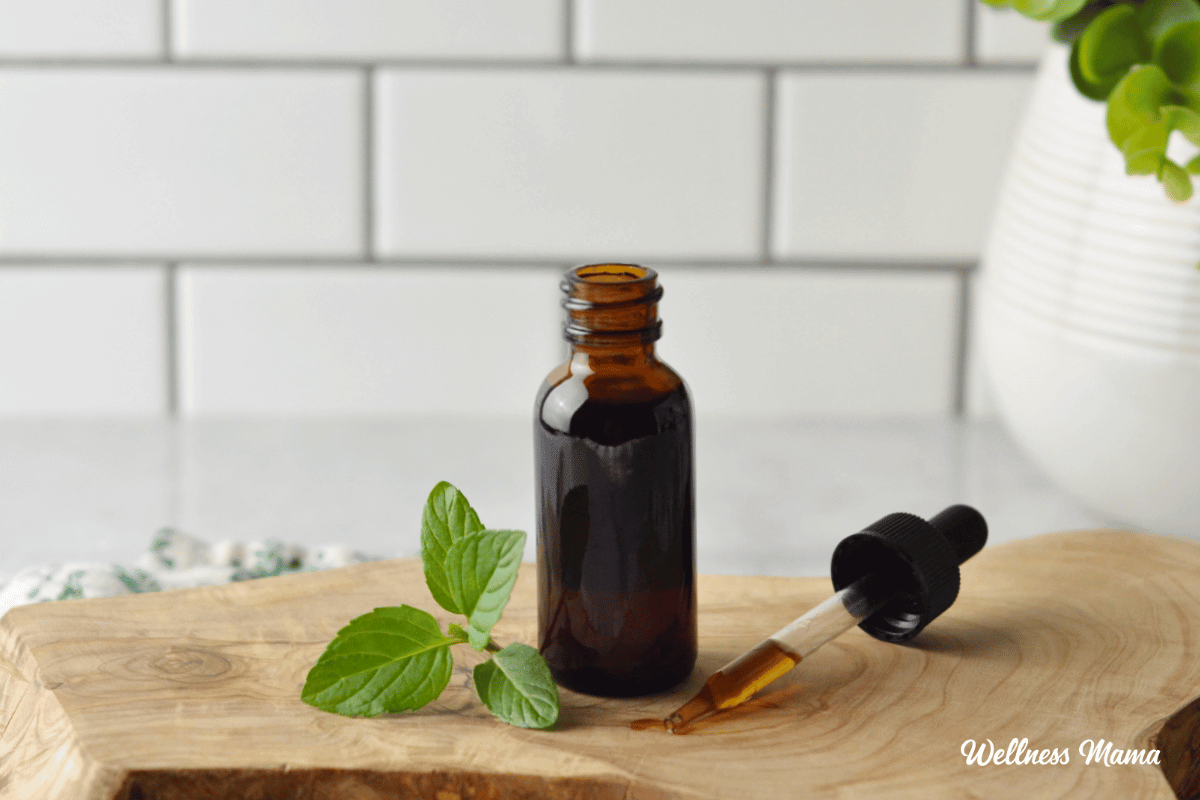
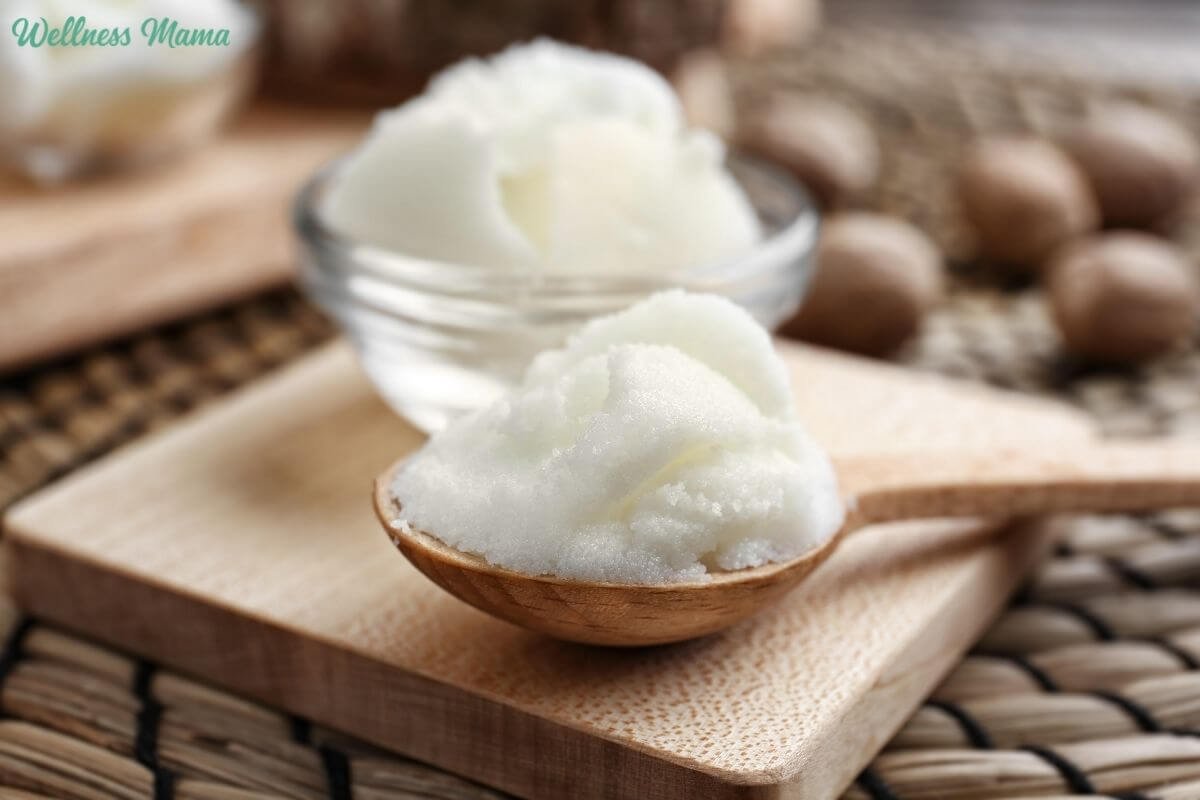
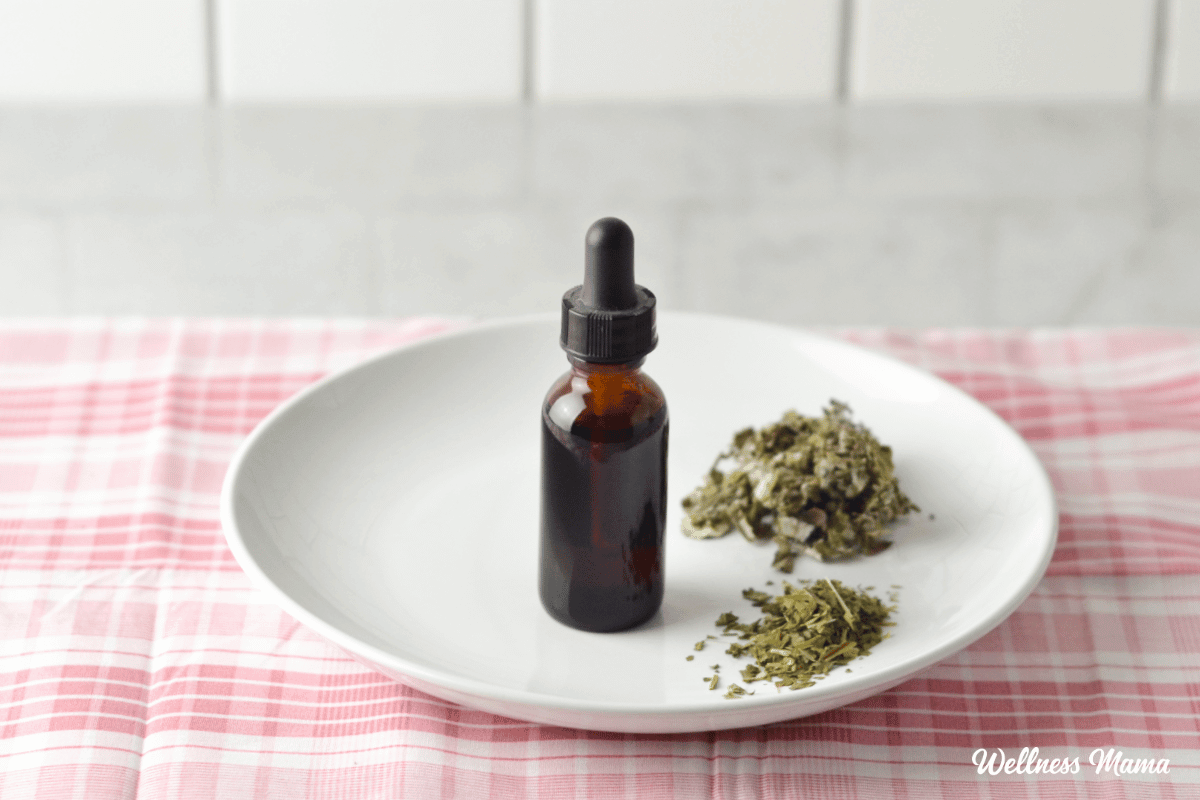

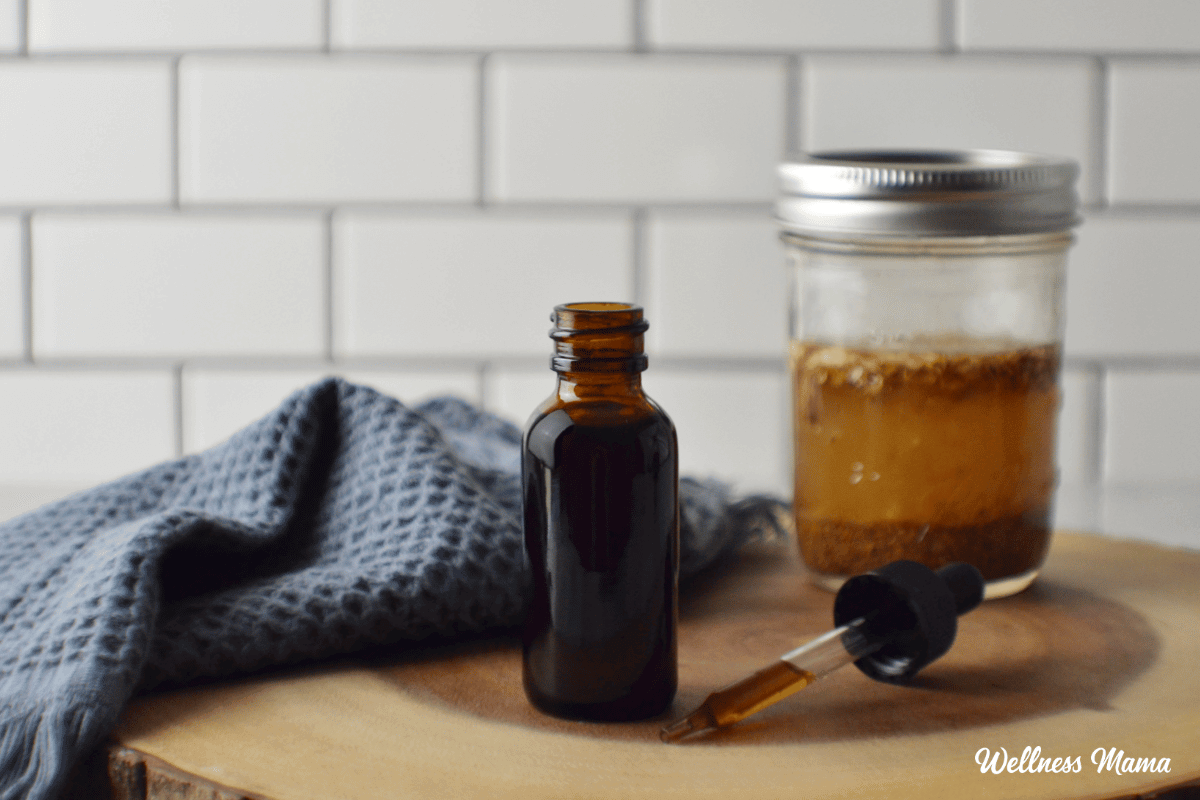


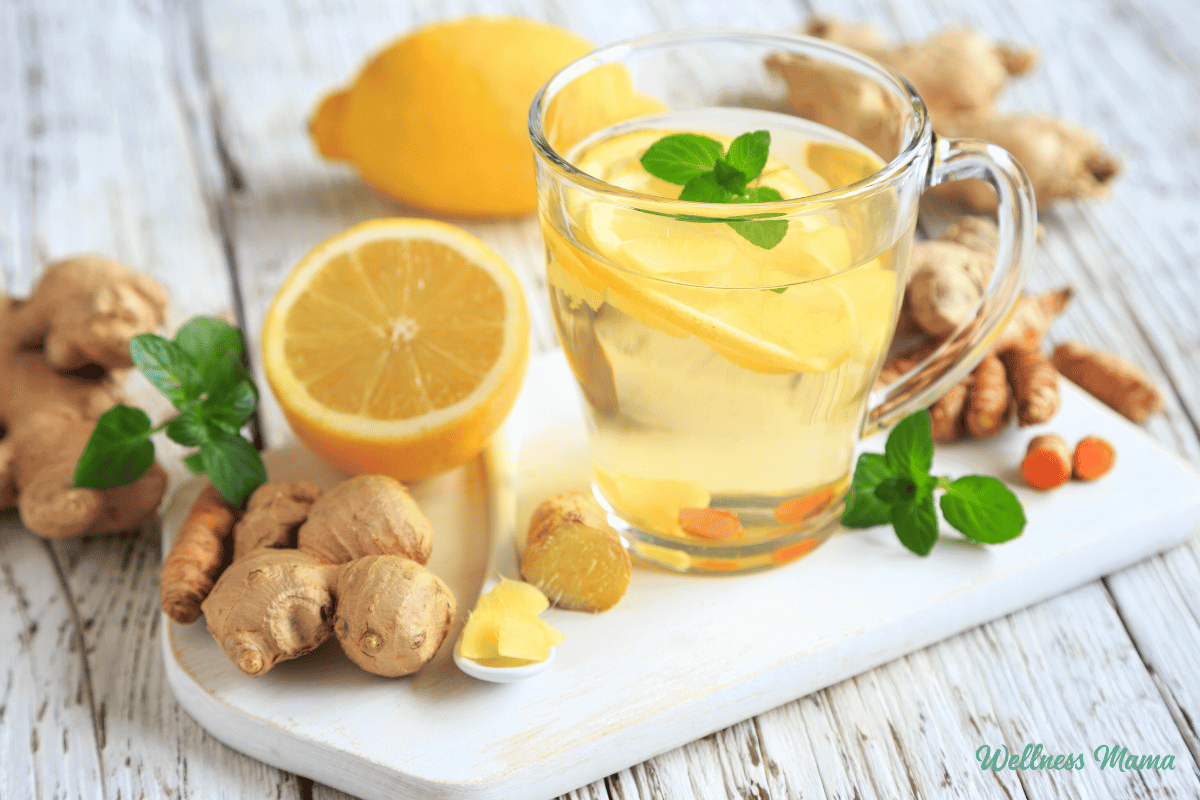
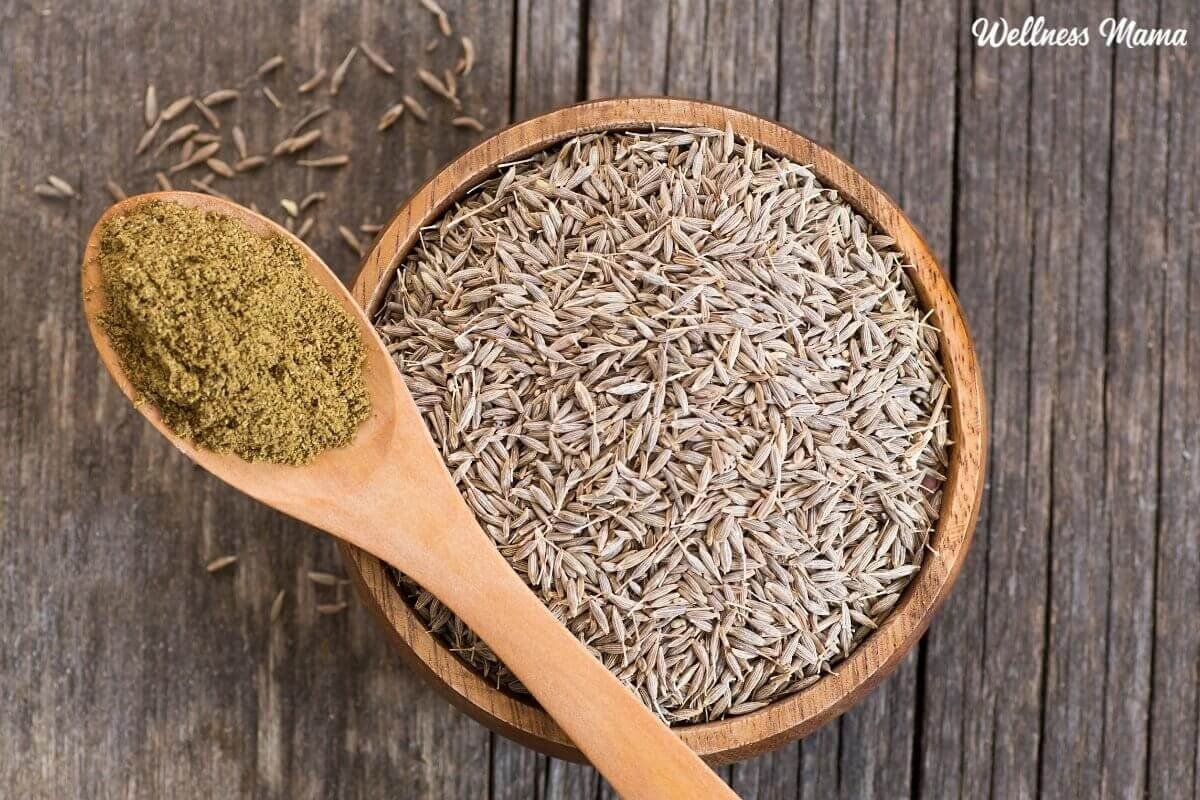
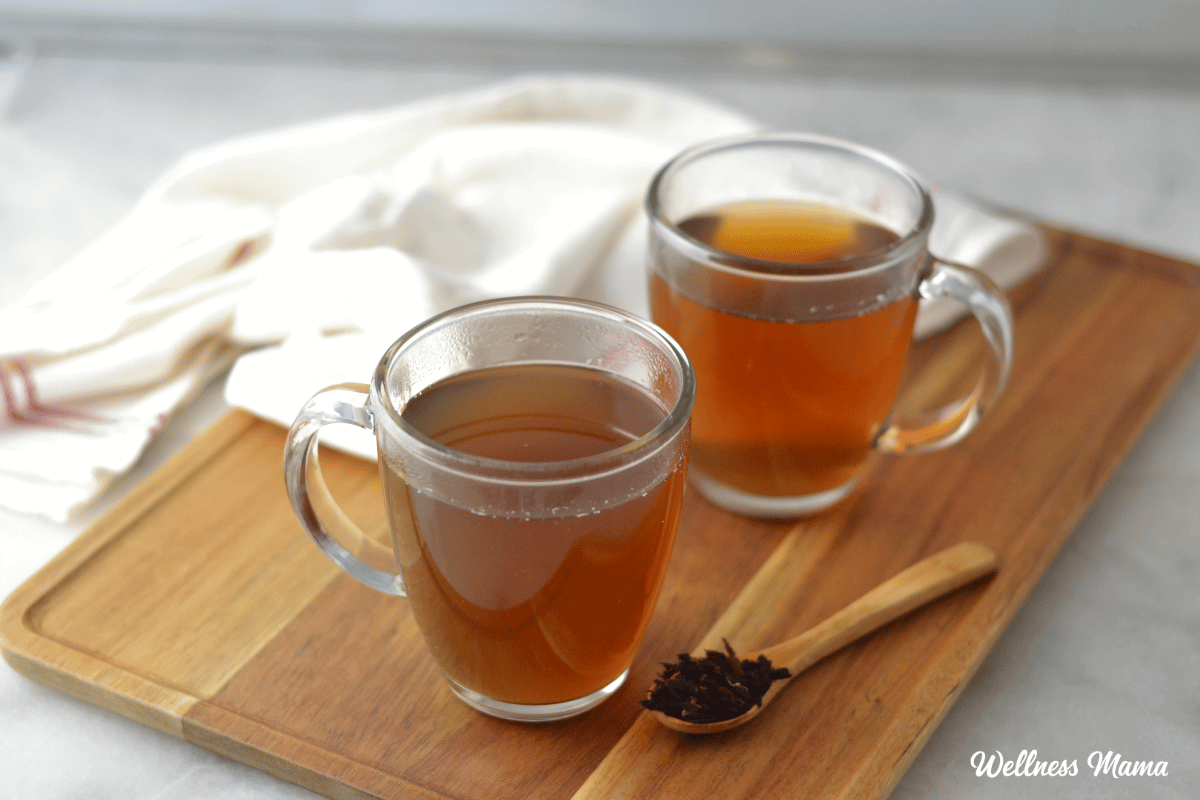


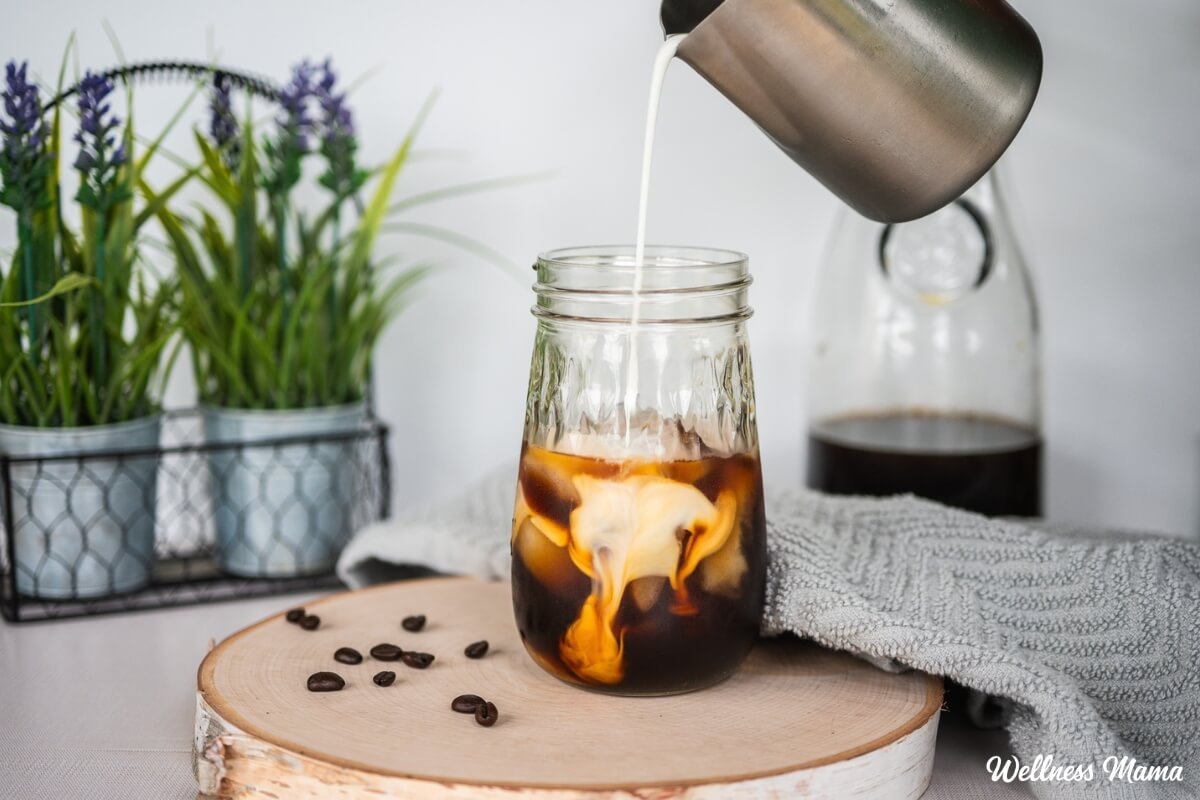
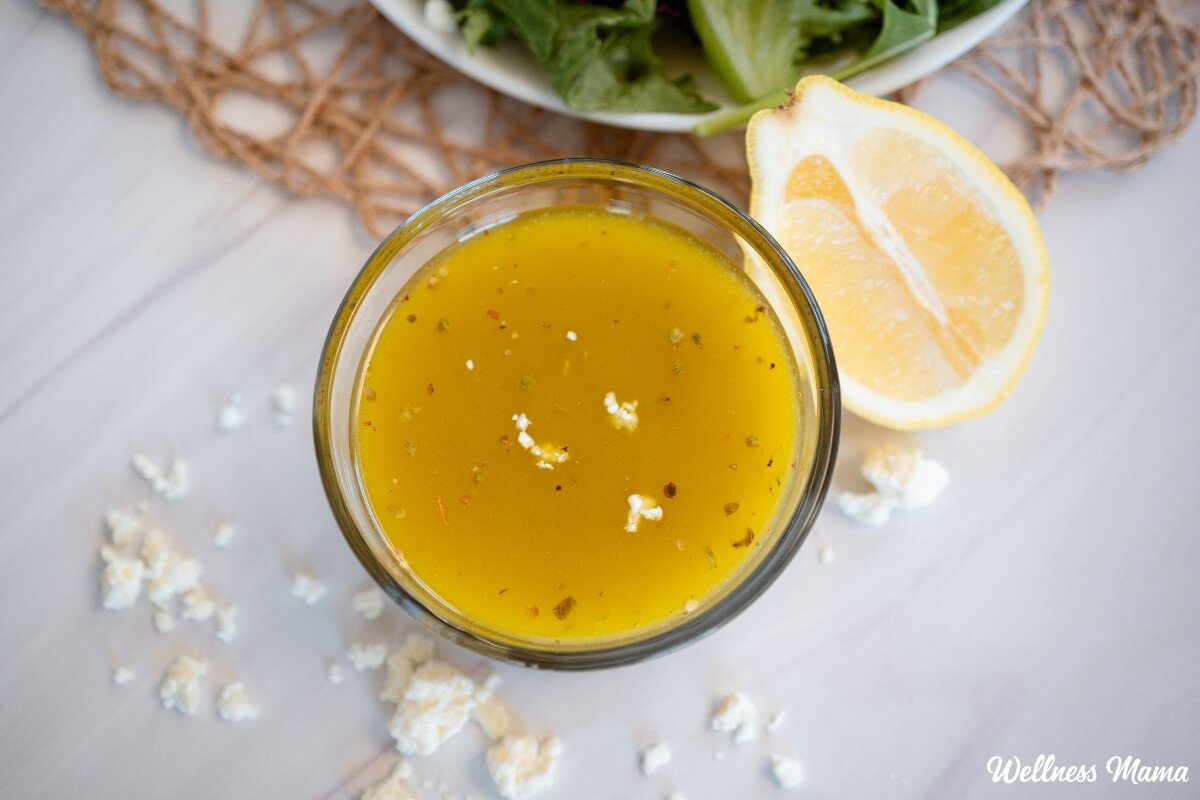
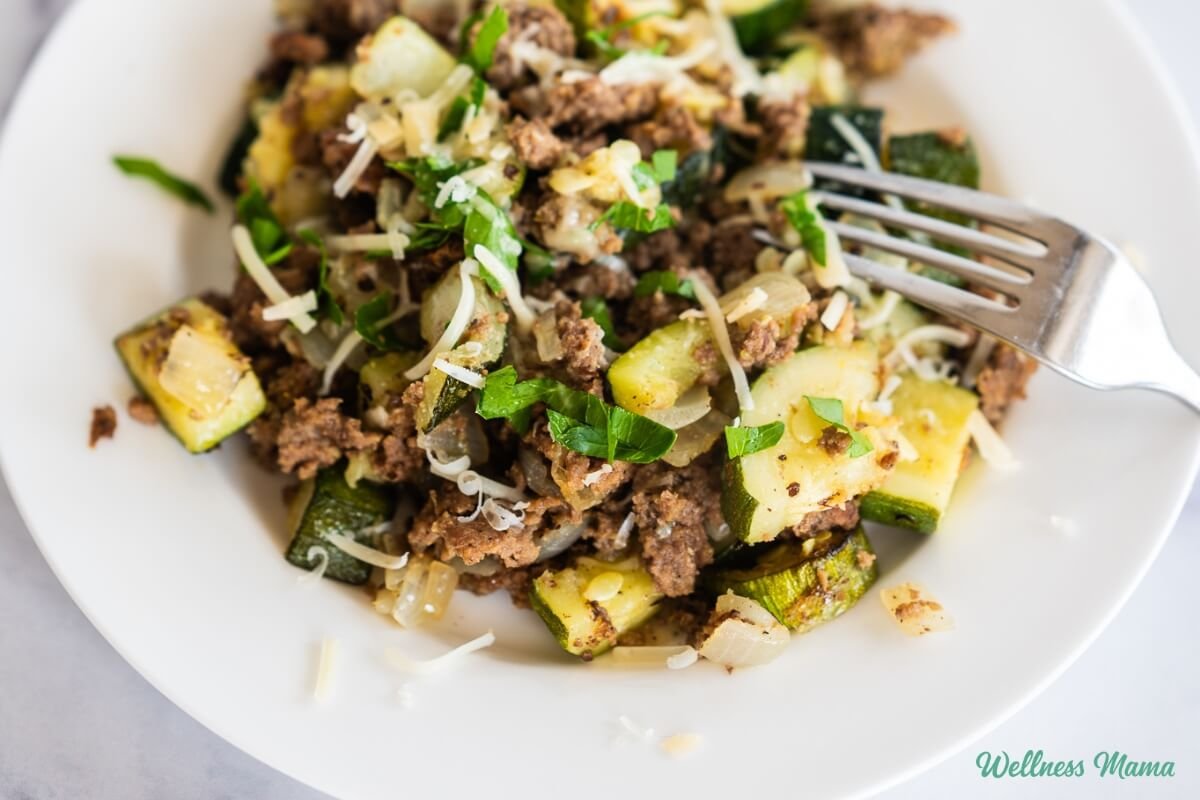
Leave a Reply